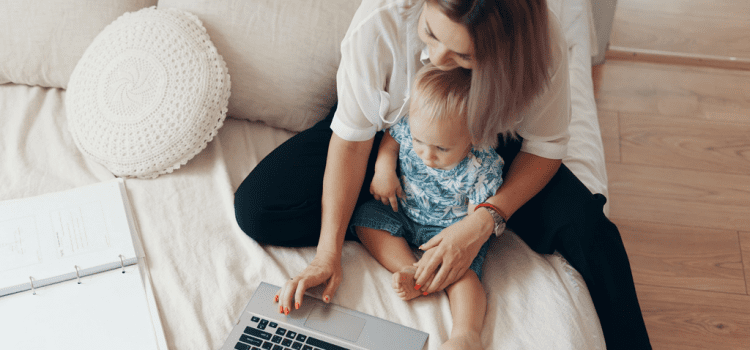Taking parental leave as a freelancer is quite a different experience than doing so while employed. The rules about leave and pay are slightly different. Then there’s the whole dilemma of what to do with your business while taking time off.
We’re here to give you a quick guide on how you can prepare as an expectant parent, including all the legal stuff you need to know, and how to keep your business afloat at the same time.
The legal bits you need to know
Maternity Allowance Eligibility
Unlike an employee, self-employed freelancers are not entitled to the regular Statutory Maternity Pay (SMP). Instead, freelancers can apply for a Maternity Allowance (MA).
The current rules state that you can get MA for 39 weeks if you are self-employed and pay Class 2 National Insurance.
You will also need to:
- Be self-employed for at least 26 weeks in the 66 weeks before the baby’s birth
- Pay Class 2 National Insurance for at least 13 weeks within the 66 weeks before the baby’s due date.
If you meet these criteria, you will be entitled to between £27 and £184.03 a week, depending on the contributions you have made.
Can you still work while receiving Maternity Allowance?
If you’re applying for MA, you won’t be able to keep working except for 10 ‘Keeping in Touch’ days. These ‘Keeping in Touch’ days allow you to work a maximum of 10 days within the period you’re receiving MA.
This lets you manage your business, keep in touch with clients and ease your way back into work. If you decide to work more than those 10 days, you will lose your entitlement to MA.
Can you get paternity pay as a freelancer?
Unfortunately, only employees with an employment contract can get Statutory Paternity Pay. Unlike with the Maternity Allowance, there is no self-employed equivalent as of yet. That means fathers and partners who are self-employed will have to make other arrangements if they want to take time off.
Saving money to cover parental leave
Whether you are entitled to any type of parental leave/pay or not, it’s a good idea to build up your savings as much as you can. Having savings to cover living expenses and the expenses of having a new baby is so important.
Sit down with your partner to plan out how much time either of you is taking off, how much you will need to live on and how much you can save each month until then. To save as much money as possible, you may need to consider a new household budget and set up a separate savings account just for parental leave.
How to keep your business ticking over
Once you’ve done some research on what you’re entitled to, it’s time to start thinking about your business.
Preparing your existing clients
It’s understandable if you’re worried about letting clients know you’ll be taking time off, but it’s best to give them as much notice as possible. This gives them time to make other arrangements or gives you both time to work out a plan of action to cover your absence.
For example, this might mean bringing some big projects forward to finish before you go on leave.
Outsourcing
A lot of freelancers with ongoing clients feel guilty and worried about leaving them without help. That’s why some freelancers take the leap and outsource some tasks to keep the business running.
Common tasks to outsource include admin, email answering, quoting, marketing or bookkeeping. You may want to hire a virtual assistant to help with the day-to-day running of the business or a freelance marketer to help keep your website/social media channels updated.
Sorting out your business finances
A few weeks before you go on leave, spend some time checking over your existing invoices. If there are outstanding invoices, it’s best to chase them up as soon as you can to get them paid before you go on leave. The last thing you want is unpaid invoices hanging over your head while welcoming a newborn.
Another thing to box off is your tax return. If you know you need to file a tax return while you are on leave, do it well in advance so you don’t forget.
We hope these tips have helped you feel better prepared for taking parental leave as a freelancer. It can be a difficult thing to prepare for, so plan as much in advance as possible. Good luck!







